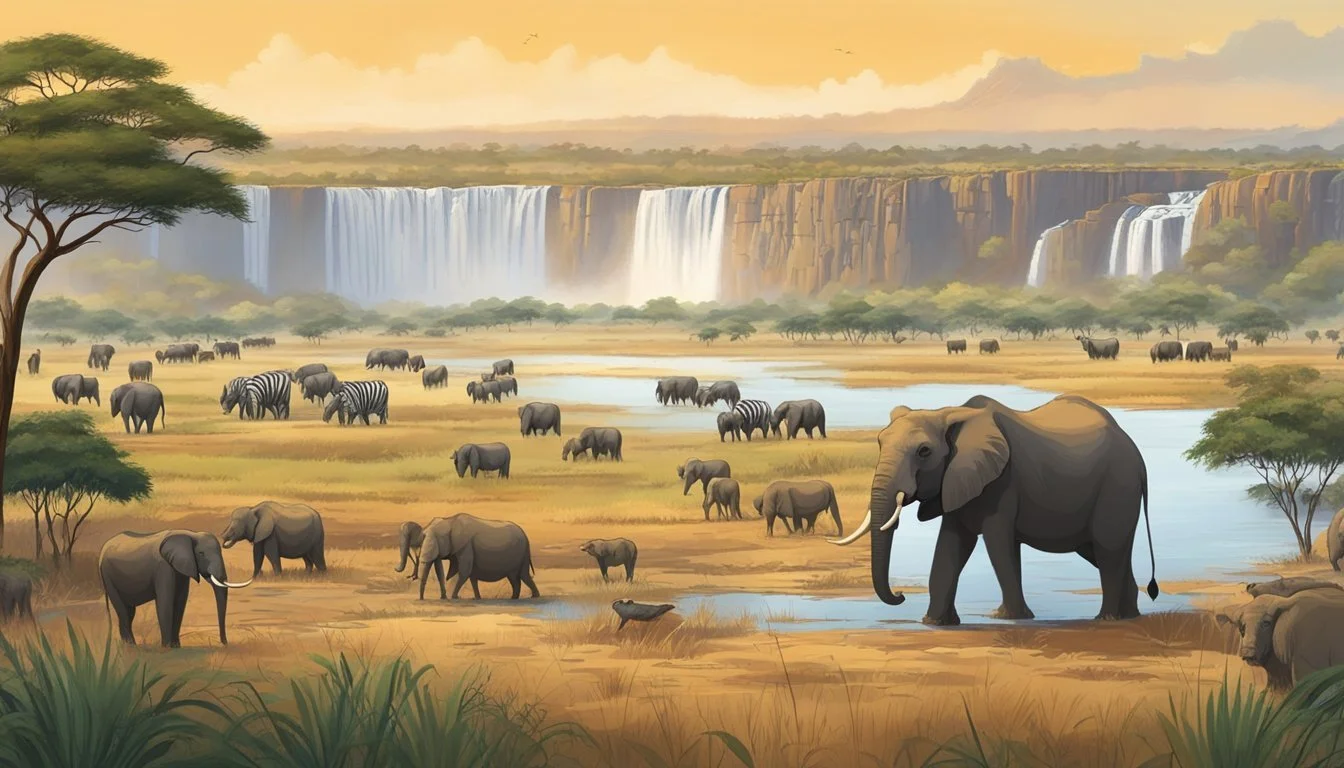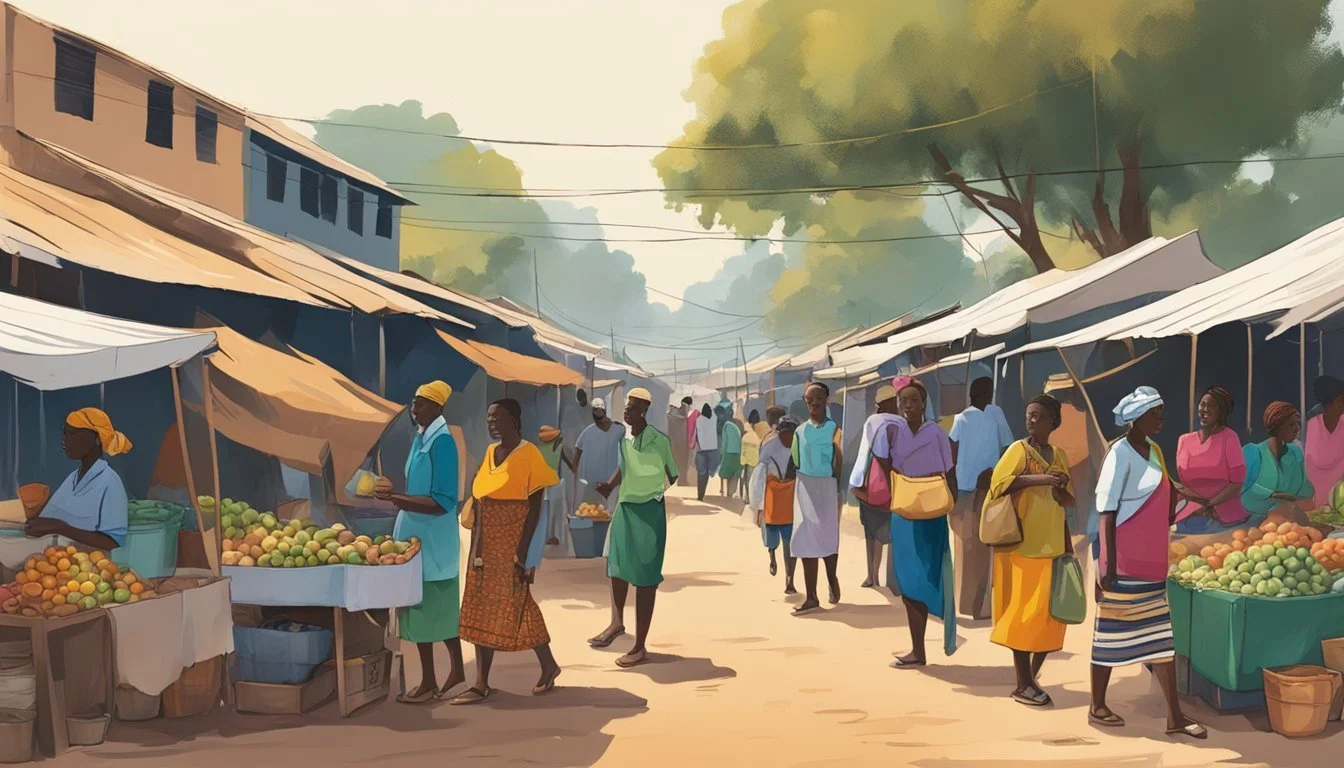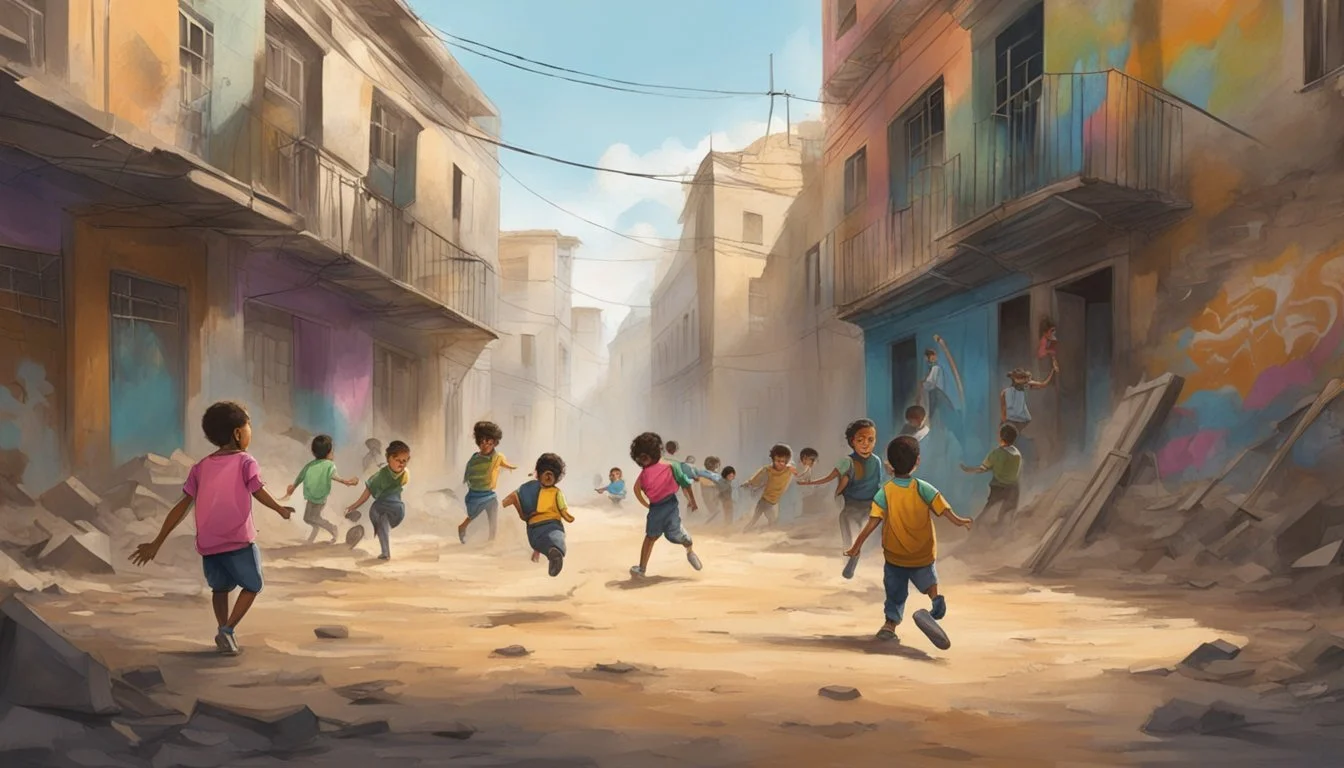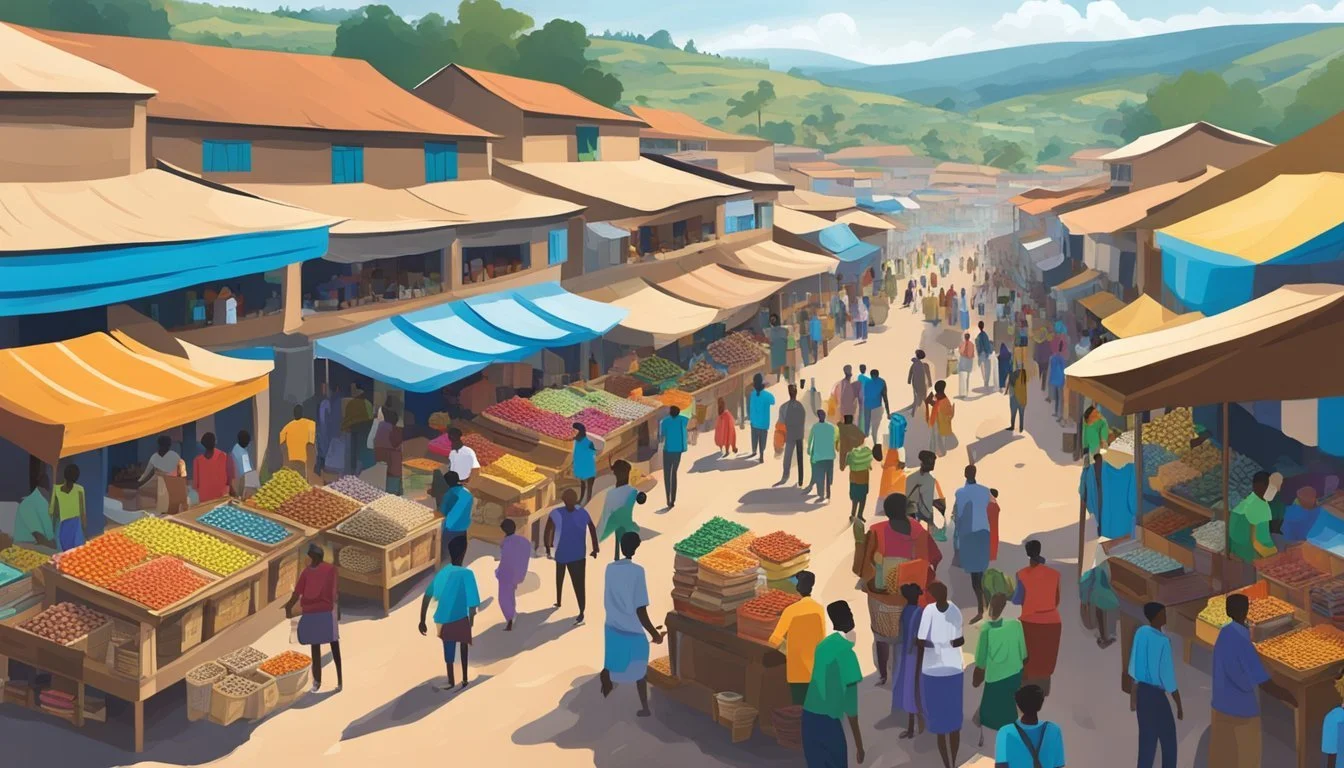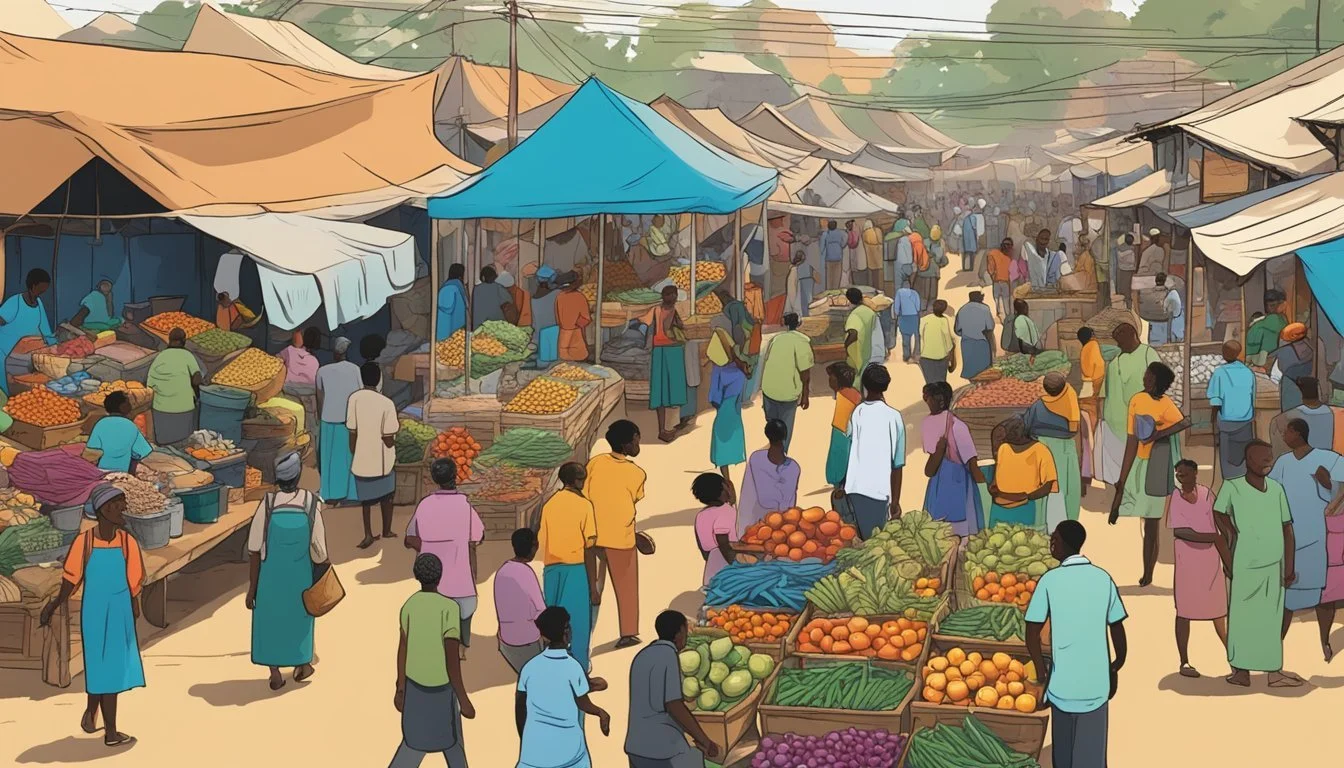6 Eye-Opening Documentaries on Zimbabwe
Unveiling the Nation's History and Culture
Documentaries offer a powerful lens through which to explore complex social, political, and historical issues. Zimbabwe, with its rich history and complex challenges, has been the subject of numerous thought-provoking films that shed light on various aspects of the nation's past and present.
These documentaries provide viewers with unique insights into Zimbabwe's struggle for democracy, its political landscape, and the impact of key figures like Robert Mugabe on the country's trajectory. From explorations of border issues to in-depth analyses of leadership transitions, these films offer diverse perspectives on Zimbabwe's evolving story. By examining these documentaries, audiences can gain a deeper understanding of the forces shaping this Southern African nation.
1) 'Mugabe and the White African'
'Mugabe and the White African' is a powerful documentary film released in 2009. Directed by Lucy Bailey and Andrew Thompson, it offers a gripping look at Zimbabwe's controversial land reform program.
The film centers on Mike Campbell, a white Zimbabwean farmer, and his family. It chronicles their struggle to keep their farm in Chegutu amid President Robert Mugabe's efforts to seize land from white owners.
Campbell's decision to challenge Mugabe's land redistribution program in court forms the core of the narrative. The documentary captures the family's resilience in the face of intimidation and violence.
Set against the backdrop of Zimbabwe's tumultuous 2008 presidential election, the film provides insight into the country's complex racial and political dynamics. It explores themes of justice, property rights, and the legacy of colonialism.
'Mugabe and the White African' received critical acclaim and numerous accolades. It earned nominations for prestigious awards, including a BAFTA, and won the British Independent Film Award.
The documentary offers viewers a nuanced perspective on a contentious period in Zimbabwe's history. It serves as a compelling entry point for understanding the country's land reform issues and their impact on both white farmers and black Zimbabweans.
2) 'Democrats' by Camilla Nielsson
'Democrats' is a 2014 Danish documentary film directed by Camilla Nielsson. It focuses on the political landscape of Zimbabwe following the contentious 2008 election.
The film chronicles the coalition effort to draft a new constitution for the country. Nielsson gained unprecedented access behind the scenes of this democracy-in-the-making process.
The documentary follows two rival party operatives as they navigate Zimbabwe's volatile political environment. It showcases the challenges and complexities involved in creating a new constitutional framework.
'Democrats' provides an intimate look at the inner workings of Zimbabwean politics under Robert Mugabe's rule. It captures the tension between the ruling party and the divided opposition during this critical period.
The film received critical acclaim for its insightful portrayal of political maneuvering and constitutional reform. It offers viewers a rare glimpse into the often opaque world of African politics.
Notably, 'Democrats' was banned by Zimbabwe's Board of Censors, highlighting the sensitive nature of its content. This censorship underscores the ongoing challenges to free speech and democratic processes in the country.
3) 'Tales from the Zimbabwean Roads'
'Tales from the Zimbabwean Roads' offers a unique glimpse into the lives of ordinary Zimbabweans as they navigate the country's challenging transport infrastructure. This documentary captures the daily struggles and triumphs of people who rely on the nation's road network.
The film follows various individuals, from long-distance truck drivers to rural villagers, as they traverse Zimbabwe's diverse landscape. It showcases the ingenuity and resilience of citizens who adapt to poorly maintained roads and unreliable public transportation.
Viewers gain insight into the economic impact of Zimbabwe's road conditions on both local communities and regional trade. The documentary also explores how road infrastructure affects access to education, healthcare, and economic opportunities across the country.
Through personal stories and stunning visuals, 'Tales from the Zimbabwean Roads' highlights the critical role transportation plays in shaping daily life and national development. It sheds light on the challenges faced by rural and urban communities alike.
The film serves as a powerful testament to the spirit of Zimbabweans who persevere despite infrastructural obstacles. It prompts viewers to consider the importance of reliable transportation networks in fostering economic growth and improving quality of life.
4) 'Zimbabwe - Child of the Revolution'
'Zimbabwe - Child of the Revolution' is a compelling documentary that offers a unique perspective on Zimbabwe's history and political landscape. Directed by Xoliswa Sithole, the film chronicles her personal journey and experiences.
Sithole fled Apartheid South Africa as a child and grew up among Zimbabwe's freedom fighters. This background provides her with intimate insights into the country's struggle for independence and its aftermath.
The documentary explores Zimbabwe's transformation from a beacon of hope to a nation grappling with political and economic challenges. Sithole's narrative weaves together personal memories with broader historical events.
Through interviews and archival footage, the film examines the legacy of Zimbabwe's liberation movement. It highlights the complexities of post-colonial nation-building and the unfulfilled promises of independence.
'Zimbabwe - Child of the Revolution' offers a nuanced portrayal of Robert Mugabe's leadership and its impact on the country. The documentary provides viewers with a deeper understanding of Zimbabwe's recent history and current situation.
5) 'State of Mind' by Joseph Winston
'State of Mind' is a groundbreaking documentary that explores mental health issues in Zimbabwe. Directed by Joseph Winston, this film is the first African documentary feature to focus on mental illness disorders and their treatment.
The documentary sheds light on the challenges faced by individuals with mental health conditions in Zimbabwe. It examines how these disorders are diagnosed, managed, and ultimately treated within the country's healthcare system.
Winston's film provides a unique perspective on mental health in an African context. It offers insights into the cultural, social, and economic factors that influence mental health care in Zimbabwe.
'State of Mind' features interviews with patients, healthcare professionals, and family members affected by mental illness. These personal stories give viewers a deeper understanding of the realities of living with mental health disorders in Zimbabwe.
The documentary also explores traditional healing practices and their role in mental health treatment. It examines how these methods coexist with modern psychiatric approaches in Zimbabwe's healthcare landscape.
6) 'Crossing Lines: Kigali and Beyond'
'Crossing Lines: Kigali and Beyond' is a thought-provoking documentary that explores the interconnectedness of African nations. The film focuses on the relationship between Zimbabwe and Rwanda, examining how their histories and cultures intersect.
Director Tendai Musoni spent two years traveling between Kigali and Harare, capturing stories of resilience and reconciliation. The documentary features interviews with survivors of both the Rwandan genocide and Zimbabwe's political turmoil.
One of the film's strengths is its exploration of cross-border initiatives. It highlights collaborative projects in education, agriculture, and technology that have emerged between the two countries.
The documentary also delves into the shared challenges faced by Rwanda and Zimbabwe, such as economic development and national healing. It presents a nuanced view of how these nations are addressing their past traumas while building towards a more stable future.
'Crossing Lines' received critical acclaim for its balanced portrayal and innovative cinematography. The film's use of drone footage provides stunning visuals of both urban and rural landscapes, effectively illustrating the geographic and cultural diversity of the region.
Historical Context
Zimbabwe's history spans thousands of years, from ancient civilizations to colonial rule and the struggle for independence. This complex past has shaped the nation's cultural identity and political landscape.
Pre-Colonial Era
The Shona people established settlements in present-day Zimbabwe around 1000 CE. They built impressive stone structures, including the Great Zimbabwe ruins, which became a powerful trading empire. These ruins showcase advanced architectural techniques and provide evidence of a sophisticated society.
Gold mining and trade with Arab merchants fueled economic growth. The Rozwi Empire emerged in the 17th century, expanding Shona influence across the region. Traditional beliefs, art, and social structures flourished during this period.
Impact of Colonialism
British colonization began in the 1890s under Cecil Rhodes' British South Africa Company. The territory was named Southern Rhodesia in 1898. Colonial rule brought significant changes:
Land seizures displaced indigenous populations
Introduction of European education and Christianity
Development of mining and agricultural industries
Racial segregation policies
The white minority government declared independence in 1965, leading to international sanctions. This period saw the rise of African nationalist movements and guerrilla warfare. The Lancaster House Agreement in 1979 paved the way for Zimbabwe's independence in 1980, ending nearly a century of colonial rule.
Post-Independence Development
Zimbabwe's journey after gaining independence in 1980 saw significant shifts in economic policies and social structures. These changes aimed to address historical inequalities and foster national growth.
Economic Transformation
Zimbabwe initially adopted socialist-leaning economic policies after independence. The government focused on redistributing land and increasing public spending on education and healthcare. In the 1980s, the country experienced steady economic growth and improved living standards for many citizens.
By the 1990s, Zimbabwe implemented market-oriented reforms under pressure from international financial institutions. These changes included trade liberalization and reduced government spending. However, economic challenges emerged in the late 1990s, leading to hyperinflation and a severe economic crisis in the 2000s.
Land reform became a contentious issue, with the government initiating a fast-track program in 2000. This policy aimed to redistribute white-owned commercial farms to black Zimbabweans but led to a sharp decline in agricultural productivity.
Social Changes
Post-independence Zimbabwe saw rapid expansion of education and healthcare services. The government prioritized increasing literacy rates and improving access to medical care, particularly in rural areas. These efforts resulted in significant gains in educational attainment and health indicators during the 1980s and early 1990s.
Urbanization accelerated as people migrated to cities in search of economic opportunities. This shift led to the growth of urban centers and informal settlements. The HIV/AIDS epidemic emerged as a major health crisis in the 1990s, impacting social structures and placing strain on healthcare systems.
Gender equality initiatives gained momentum, with laws passed to improve women's rights and representation in various sectors. However, implementation challenges persisted, and traditional gender roles remained influential in many communities.
Current Political Landscape
Zimbabwe's political landscape remains complex and contentious. The country continues to grapple with economic challenges, including high inflation and unemployment.
President Emmerson Mnangagwa, who succeeded Robert Mugabe in 2017, leads the ruling ZANU-PF party. His administration faces criticism over human rights issues and allegations of corruption.
The main opposition party, the Citizens Coalition for Change (CCC), led by Nelson Chamisa, challenges the government's policies and governance. Political tensions often run high, especially during election periods.
International observers closely monitor Zimbabwe's political situation. Concerns about electoral integrity and democratic processes persist.
The government has implemented some economic reforms to attract foreign investment. However, progress is slow, and many Zimbabweans still struggle with poverty and lack of basic services.
Freedom of expression and press freedom remain contentious issues. Journalists and activists sometimes face harassment or arrest for criticizing the government.
Zimbabwe's relationship with the international community is gradually improving, but sanctions from some Western countries remain in place. These impact the country's economic recovery efforts.
Rural-urban political divides are significant, with ZANU-PF traditionally strong in rural areas and opposition parties gaining support in urban centers.

